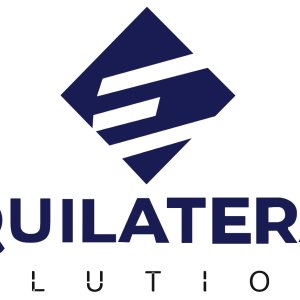
Why your food business needs an fssai license (mandatory in indi
What is FSSAI? If you re into the food business in India, FSSAI isn’t just a buzzword—it’s the rulebook. The Food Safety and Standards Authority of India (FSSAI) is a government body under the Ministry of Health and Family Welfare. Its job? To make sure what we eat is safe and meets hygiene standards. Think of it as the food cop of India, setting the ground rules for everything from street food to fancy restaurant menus. FSSAI s reach covers every kind of food-related business—restaurants, food stalls, packaged snack companies, dairy suppliers, meat processors, and even cloud kitchens. Whether you re selling pani puri on the street or exporting premium organic spices, if your business handles food, FSSAI has you on its radar. This isn’t just about ticking boxes. It’s about responsibility. When you have an FSSAI license, you re promising your customers clean, safe, and good-quality food. In an age where people are more conscious than ever about what they put into their bodies, that s a promise that goes a long way. History and Role of FSSAI in India FSSAI was born in 2006 under the Food Safety and Standards Act, but it really picked up steam in the last decade, especially as India’s food industry exploded. The food scene diversified—vegan cafes, organic food brands, health-focused startups—and FSSAI became the torchbearer ensuring that this explosion didn’t come at the cost of public health. It merged a whole bunch of older laws (remember the Prevention of Food Adulteration Act?) into one strong, centralized system. That means fewer loopholes, more accountability. From setting standards for food additives to issuing alerts on contaminated products, the authority covers all bases. It’s also responsible for training food safety officers, inspecting facilities, and spreading awareness about food safety. In short, FSSAI makes sure that what reaches your plate isn’t just tasty—it’s trustworthy. Understanding the FSSAI License Types of FSSAI Licenses Depending on your business size, turnover, and location, there are three main types of licenses you can get: Basic Registration Perfect for small businesses and startups—think home bakers, local snack sellers, or vendors earning less than ₹12 lakhs annually. This is an entry-level license but still essential. Just because you re starting small doesn’t mean the rules don’t apply. State License If your annual turnover is between ₹12 lakhs and ₹20 crores, or if you operate in just one state, this one’s for you. Mid-sized restaurants, regional food manufacturers, or catering services usually fall into this category. Central License Handling a turnover of over ₹20 crores or operating in multiple states? Then you’ll need a Central FSSAI license. This one is a bit more detailed in paperwork and scrutiny, especially if you’re into exports or run franchises across cities. Who Needs an FSSAI License? Let’s clear this up—if your
-
Category: Business & Industrial
Important!
There are a lot of advertisers on Advertigo. We cannot check them one by one.
You work hard for your money and you want a company you can rely on when you are buying or selling things. That’s why we want to help you protect yourself from fraud. In this section, you’ll find informative tips and other useful material to stay informed and help reduce your chances of falling victim to scammers.
Please understand that Advertigo.net is a free service to help buyers and sellers (and etc.) find one another. Advertigo.net is not involved in any transactions and can not police the actions of our many users.
Useful links
Similar ads
Built for performance – r-techno, a trusted vsi manufacturer
the R-Techno Vertical Shaft Impactor (VSI), a high-performance solution engineered for fine crushing and superior
R-Techno India
Original parts for air compressors - chicago pneumatic
Ensure optimal performance with Chicago Pneumatic s Original Parts for Air Compressors. Explore our range
Chicago Pneumatic Compressors, India
Eco-friendly engineering with ss fasteners
Sustainability begins when each of us makes the right choice! [SS Fasteners Manufacturers in India][1]
Rebolt Alloys
Top stainless steel round bar manufacturer in india – neelkamal
Neelkamal Alloys LLP is a top manufacturer of high-quality Stainless Steel Round Bars in India...
Neelkamal Alloys
Top cnc machines for metal & wood cutting – budget-friendly, pro
Looking for precision CNC machines without the high cost? Our CNC cutting machines are engineered
Sweta Tiwari
Upgrade your construction with our stainless steel round bars
Hans Metal India: Looking for strength, durability, and precision in every build? Our premium Hans
Hans Metal India
Ethylene oxide in sterilization: a safe and efficient method for
Using ethylene oxide in sterilization is a proven and efficient method for disinfecting complex medical
Equilateralsolutions12
Best cloud optimization in pune
Teleglobals International Pvt. Ltd. delivers cutting-edge cloud services from Pune and Dubai, empowering businesses with
Ashish Kumar
Heavy-duty cattle feed plant machines – long-lasting & durable
Looking for top-quality cattle feed plant machinery that delivers long-term performance? Maha Shiv Shakti Engineers,
Maha Shiv Shakti Enginers
Trinqet 5x5mt large garden shade net sun protection sails
The TRINQET 5x5m Large Garden Shade Net Sun Protection Sail is a premium outdoor covering
Trinqet









